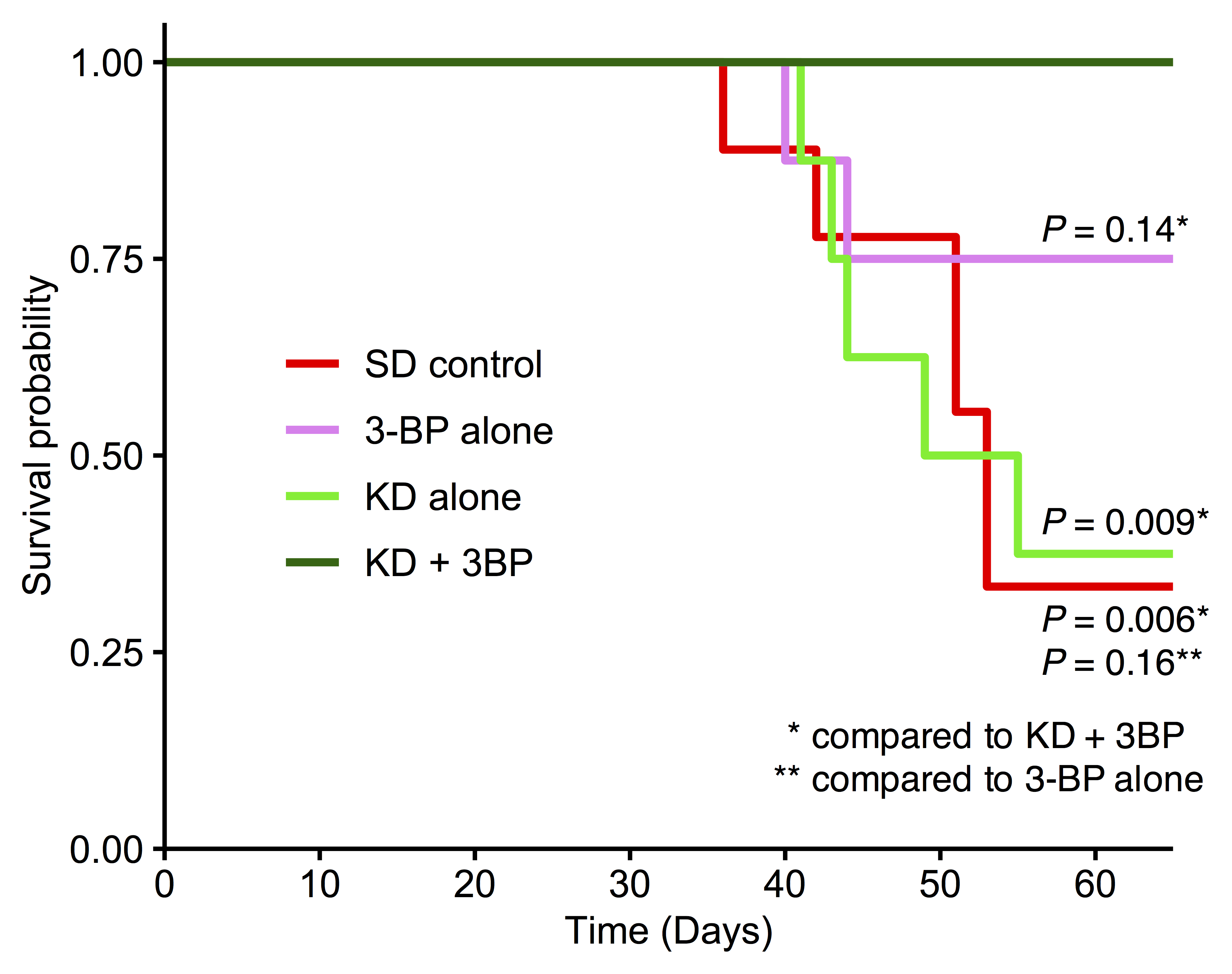Ketogenic diet combined with inhibition of glycolysis improves survival in an orthotopic mouse model of anaplastic thyroid cancer
*Bixiao Zhao, *Abha Aggarwal, *Jessica Marshall, Matthew Nehs
Brigham and Women's Hospital, Boston, MA
Objective: Anaplastic thyroid cancer (ATC) is a rare but devastating malignancy without effective current treatments. Glucose is an essential nutrient for tumor cell growth. This study aims to determine if inhibition of glucose metabolism can improve survival in a mouse model of ATC.
Design: An orthotopic xenograft model of ATC was generated by injection of 8505C cells into the left thyroid lobes of nude immunocompromised mice. Animals were treated with ketogenic diet (KD) and intraperitoneal injections of glycolytic inhibitor 3-bromopyruvate (3-BP). Standard diet (SD) control (N=9), KD alone (N=8), 3-BP alone (N=8), and KD plus 3-BP (N=8) treatment groups were monitored for weight, blood glucose, and ketone levels for 9 weeks.
Setting: Research laboratory with Biosafety Level 2 animal facility.
Patients: Nude mice from Jackson Laboratory.
Interventions: KD and intraperitoneal 3-BP injections. 3-BP was administered for 5 weeks.
Main Outcome Measures: Overall survival.
Results: Animals treated with KD versus SD exhibited consistently higher blood ketone values (P < 10-6). Glucose measurements were similar between experimental groups after the third week of treatment. Concomitant treatment with KD and 3-BP improved survival compared to SD control (P = 0.006), and led to animal survival until the end of study. Administration of KD or 3-BP alone did not increase survival over SD.
Conclusions: Ketogenic diet given concurrently with glycolytic inhibition using 3-BP significantly increased survival in an orthotopic model of ATC. The ketogenic diet combined with suppression of glucose metabolism may represent a promising treatment for ATC. 
Back to 2020 Abstracts
